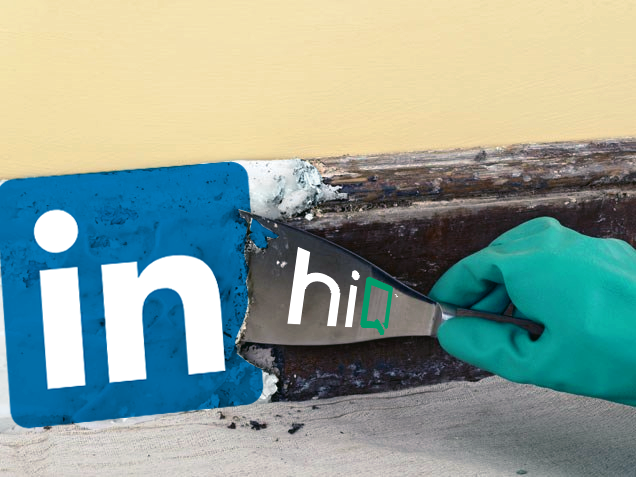Two years ago, LinkedIn a federal judge issued a considerable setback for LinkedIn, ruling that it can’t block the startup hiQ Labs from accessing public profile data. This past Monday, a federal appeals court denied LinkedIn’s attempt to stop hiQ Labs from using information that users of the professional networking website have deemed public.
HiQ Labs, a San Francisco company that applies data science to human resources, assigns red, yellow or green “flight-risk” probabilities to employees by monitoring changes in their LinkedIn profiles and other public information.
This battle over public data has been seen as a test for the social media conglomerate in how much control it can exercise over data on its users and what it’s believed to be public.
The primary question in this case, can a social media site control access to information its users post publicly?
According to Reuters, The 3-0 decision by the San Francisco appeals court sets back Silicon Valley’s battle against “data scraping,” or extracting information from social media accounts or websites, which critics (aka, LinkedIn) say can equate to theft or violate users’ privacy.
Circuit Judge Marsha Berzon said hiQ proved it faced irreparable harm because it might go out of business without access.
She also said giving companies such as LinkedIn “free rein” over who can use public user data risked creating “information monopolies” that harm the public interest.
“LinkedIn has no protected property interest in the data contributed by its users, as the users retain ownership over their profiles,” Berzon wrote. “And as to the publicly available profiles, the users quite evidently intend them to be accessed by others,” including prospective employers.
It should be noted that the data that is referenced pertains to the information that is publically found on the open web. LinkedIn users have the option to allocate their information as public, which allows several different sourcing, recruiting, and web scraping companies to access it.
The case goes back to May 23, 2017, when LinkedIn sent hiQ a cease and desist letter accusing hiQ of violating LinkedIn’s user agreement by scraping and copying data from other users. The letter demanded that hiQ stop using information gathered from LinkedIn and informed hiQ that LinkedIn has blocked its access.
HiQ Labs responded by filing a suit against LinkedIn in June of 2017, claiming that LinkedIn was in infringement of antitrust laws.
At the time, hiQ argued that Linkedin’s attempts to limit the startup’s ability to use public profile data is anti-competitive and is a violation of so-called data-scrappers free speech rights.
“To the extent LinkedIn has already put in place technology to prevent hiQ from accessing these public profiles, it is ordered to remove any such barriers,” the order reads.
“We’re disappointed in the court’s decision, and we are evaluating our options following this appeal. LinkedIn will continue to fight to protect our members and the information they entrust to LinkedIn,” stated LinkedIn.
Berzon said, however, hiQ had raised serious questions about LinkedIn’s conduct, including whether it could invoke a federal law targeting computer fraud and abuse to block “free riders” from accessing user data.
“Of course, LinkedIn could satisfy its ‘free rider’ concern by eliminating the public access option, albeit at a cost to the preferences of many users and, possibly, to its own bottom line,” she wrote.
“LinkedIn wants to have it both ways. They want to use public data to grow and expand their presence on the internet, but they do not want people to do anything with the data unless they are logged into LinkedIn,” added Andre Bradshaw. “LinkedIn could easily solve the ‘security’ concerns they claim to have by simply making it so nothing is available without a logged session.”
This appeal has major implications beyond LinkedIn and hiQ Labs and could dictate just how much control companies have over publicly available data that is hosted on their service. Additionally, this ruling also enables several sourcing technology companies to access publically available data, not only from LinkedIn but other social sites as well.
“The win in court could pave the way for current and future vendors to freely leverage LinkedIn data, but I’d caution everyone to pump the breaks,” mentioned Joel Cheesman. “The loss in court just means LinkedIn has to ramp-up its technological defense on would-be scrapers. Grabbing LinkedIn data will be a game of whack-a-mole that few companies are willing or able to play. I also suspect they’ll continue the legal fight even if they think it’s a long term loss.”
